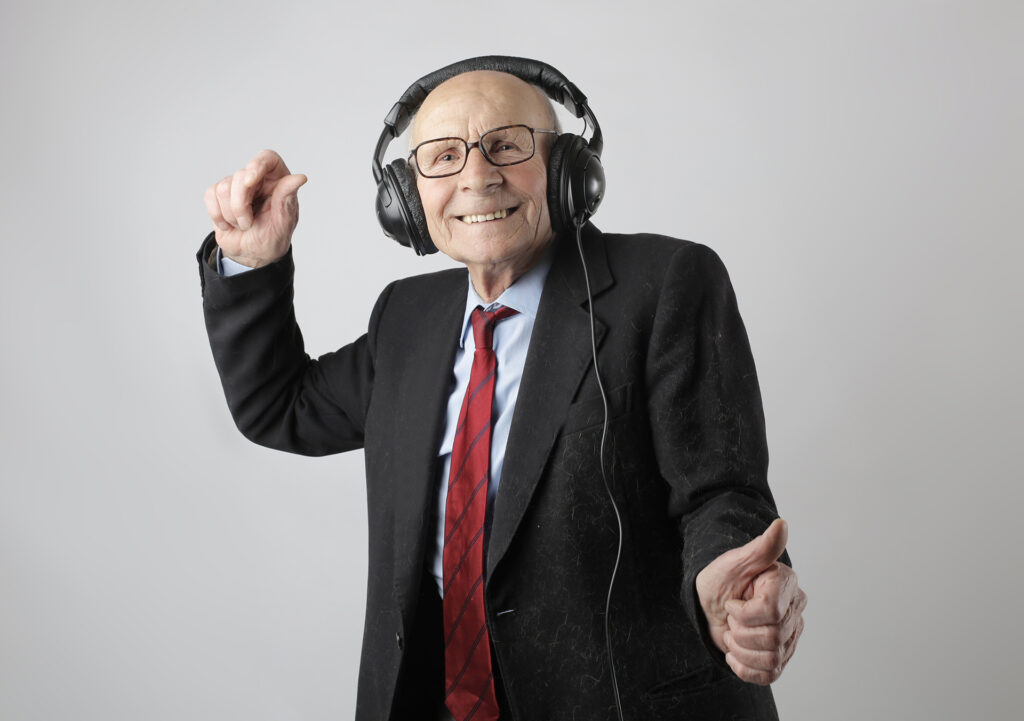Presbycusis is the type of hearing loss that usually and gradually occurs in most individuals as they grow older.
Hearing loss is a common disorder associated with aging, and about 30-35 percent of adults age 65 and older have problems associated with the loss of hearing.
Table of content
What is presbycusis or age-related hearing loss?
Presbycusis most commonly arises from changes in the inner ear of a person as he or she ages, but presbycusis can also result from changes in the middle ear or from complex changes along the nerve pathways leading to the brain.
Age-related hearing loss most often occurs in both ears, affecting them equally. Because the loss is gradual, if you have age-related hearing loss you may not realize that you’ve lost some of your ability to hear.
The hearing loss associated with presbycusis is usually greater for high-pitched sounds. For example, it may be difficult for someone to hear the nearby chirping of a bird or the ringing of a telephone.
However, the same person may be able to hear clearly the low-pitched sound of a truck driving down the street.
How do I know I have presbycusis?
Most commonly, presbycusis arises from changes in the inner ear as we age, but it can also result from changes in the middle ear, or from complex changes along the nerve pathways from the ear to the brain. Certain medical conditions and medications may also play a role.
With age-related hearing loss or presbycusis, which is gradual, sounds often seem less clear and lower in volume. This contributes to difficulty hearing and understanding speech.
Individuals with presbycusis may experience:
- The speech of others seems mumbled or slurred.
- High-pitched sounds such as “s” and “th” are difficult to hear and tell apart.
- Conversations are difficult to understand, especially with background noise.
- Lower-pitched man’s voice is easier to hear than the higher pitches of a woman’s voice.
- Certain sounds seem annoying or overly loud.
- Tinnitus may also occur.
Read More: Dealing with ear ringing or Tinnitus at work >
Why do we lose our hearing as we get older?
Many factors can contribute to hearing loss as we get older. It can be difficult to distinguish age-related hearing loss from hearing loss that can occur for other reasons, such as long-term exposure to noise.
Read More: Noise-Induced Hearing Loss and Tinnitus >
High blood pressure or diabetes also affect our hearing, as well as the medications that are toxic to the sensory cells in your ears (some chemotherapy drugs).
As we get older, for some, degeneration within the inner ear and along the nerve pathways to the brain can impact the hearing.
These changes are usually related to the health of tiny hair cells in the inner ear that help us hear. These hair cells translate the sound waves and translate them into electrical signals for the brain to interpret as recognizable sound.
Hair cells do not regenerate or regrow, so any hearing loss we experience as a result of this damage is permanent.
Read More: Hyperacusis or abnormal sensitivity to sound >

Source: Unsplash
What can be done to prevent or treat the presbycusis?
Like most types of sensorineural hearing loss, unfortulately, there is no cure that will make it forever dissapear.
Read More: Sensorineural Hearing Loss >
But don’t feel blue because most cases of sensorineural hearing loss can be treated!
- Hearing aids – Those with mild-to-moderate hearing loss may benefit from wearing hearing aids. After a hearing evaluation, a hearing healthcare professional will recommend the type and style of hearing aid according to the severity of your hearing loss, lifestyle preferences and budget.
- Cochlear implants – If you are diagnosed with severe or profound hearing loss, you may benefit from using a cochlear implant. These medical devices are surgically implanted behind your ear to help detect sound and understand speech.
- Assistive listening devices (ALDs) – Technology is available to amplify sound from your television, telephone and other personal electronic devices. ALDs can be used with or without hearing aids, depending on the type and severity of your hearing loss.
Awareness of potential sources of damaging noises, such as firearms, snowmobiles, lawn mowers, leaf blowers, woodworking machinery and loud appliances is important.
Ear plugs or special fluid-filled ear muffs can give protection and should be worn to help avoid the possibility of damage to hearing.
Excessively loud everyday noises, both at home and at work, can pose a risk to a person’s hearing. Avoiding loud noises and reducing the amount of time one is exposed to everyday noises may be helpful.
Read More: Hearing Aid – Getting Started >
Communication tips for those with presbycusis
If you have a hearing loss caused by presbycusis or know someone who does, share these tips to make them enjoy the time you spend together.
- Face the person who has a hearing loss so that he or she can see your face when you speak.
- Be sure that lighting is in front of you when you speak which will allow a person with a hearing impairment to observe facial expressions, gestures, and lip and body movements that provide communication clues.
- During conversations, turn off the radio or television.
- Avoid speaking while chewing food or covering your mouth with your hands.
- Speak at your normal rate and slightly louder than normal.
- Clue the person with the hearing loss about the topic of the conversation whenever possible.
- Rephrase your statement into shorter, simpler sentences if it appears you are not being understood.
- In restaurants and social gatherings, choose seats or conversation areas away from crowded or noisy areas.
Sources
- https://www.nidcd.nih.gov/sites/default/files/Content%20Images/presbycusis.pdf
- https://www.nidcd.nih.gov/health/age-related-hearing-loss
Contact Us
If you, or anyone you know, worked in noise and suffers from hearing loss, please do not hesitate to contact us.
Contact Us


